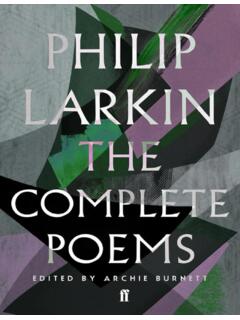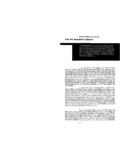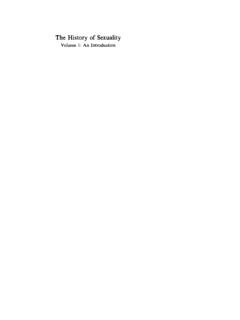Transcription of Literary Theory and Criticism
1 Literary Theory and Criticism Literary Theory and Criticism Edited by Patricia Waugh Foreword The aim of this Oxford Guide is to provide an accessible, comprehensive account of modern Literary Criticism and Theory for students and teachers often overwhelmed and bemused by the sheer diversity, volume, and heterogeneity of the intellectual sources of modern Literary critical practice. Rather than presenting modern theories as a thoroughgoing break in thought, however, the volume seeks to place modern Criticism and Theory within the context of a broader intellectual history. Collectively, the essays gathered here explore the various currents, pressures, and directions in contemporary Criticism and Theory as aspects of the cultural present and as an ongoing conversation with intellectual precursors and earlier traditions of Literary study.
2 There are numerous anthologies, readers, and textbooks on Theory now available. However, pressures on the academic curriculum often constrain coverage and selection, and, of late, emphasis has tended to fall on critical ideas and trends which have developed in the last twenty-five years. The effect is sometimes to make contemporaries appear to be more innovative or paradigm shifting than they might seem once ideas are contextualized historically and with attention to the variety of intellectual traditions which have fed into what is now often referred to simply as ' Theory '. Courses in Literary Theory and textbooks on Criticism often appear to be offering a deracinated pick- and-mix assortment of ideas and writers whose intellectual relations or engagements may remain shadowy and confusing.
3 Quite to the contrary, therefore, the aim of this volume is to provide a comprehensive account of intellectual traditions and critical movements which will enable readers to build their own sense of the map of modern Literary critical practice and to form their own appreciation of the sense of the new. Of course, any attempt to trace intellectual traditions is fraught with its own problems. michel foucault pointed out in the first French edition of The Archaeology of Knowledge, published in 1969, that 'the notion of tradition .. is intended to give a special temporal status to a group of phenomena that are both successive and identical.
4 It makes it possible to rethink the dispersion of history in the form of the same; it allows a reduction of difference proper to every beginning, in order to pursue without discontinuity the endless search for the origin'. foucault rightly repudiates the concept of tradition as an insidious promise of recovered continuity or reconciliation which denies the specificity of the past and the present. His notion of an episteme perhaps comes closer to the approach to critical history represented by this volume. An epistemic approach to understanding intellectual histories grasps that `the episteme is not a sort of grand underlying Theory , it is a space of dispersion, it is an open field of relations and no doubt indefinitely specifiable.
5 It is a complex relation of successive displacements'. Outline contents List of Contributors xix Introduction: Criticism , Theory , and anti- Theory Patricia Waugh 1. Part I Concepts of Criticism and aesthetic origins 35. 1 Mimesis: ancient Greek Literary Theory Andrea Nightingale 37. 2 Expressivity: the Romantic Theory of authorship Andrew Bennett 48. 3 Interpretation: hermeneutics Timothy Clark 59. 4 Value: Criticism , canons, and evaluation Patricia Waugh 70. Part II Criticism and critical practices in the twentieth century 83. 5 Literature and the academy Chris Baldick 85. 6 I. A. Richards Ann Banfield 96.
6 7 T. S. Eliot and the idea of tradition Gareth Reeves 107. 8 Anthropology and/as myth in modern Criticism Michael Bell 119. 9 F. R. Leavis: Criticism and culture Gary Day 130. 10 Marxist aesthetics Tony Davies 140. 11 William Empson: from verbal analysis to cultural Criticism David Fuller 152. 12 The New Criticism Stephen Matterson 166. 13 The intentional fallacy Peter Lamarque 177. 14 Adorno and the Frankfurt School Andrew Bowie 189. 15 Freud and psychoanalysis Celine Surprenant 199. 16 The Russian debate on narrative Gary Saul Morson 212. 17 Bakhtin and the dialogic principle Lynne Pearce 223. 18 Form, rhetoric, and intellectual history Faiza W.
7 Shereen 233. 19 Literature into culture: Cultural Studies after Leavis Glenn Jordan and Chris Weedon 245. Part III Literary Theory : movements and schools 257. 20 Structuralism and narrative poetics Susana Onega 259. 21 Psychoanalysis after Freud Josiane Paccaud-Huguet 280. 22 Deconstruction Alex Thomson 298. 23 Feminisms Fiona Tolan 319. 24 Postcolonialism Elleke Boehmer 340. 25 Race, nation, and ethnicity Kathleen Kerr 362. 26 Reconstructing historicism Paul Hamilton 386. 27 Postmodernism Chris Snipp-Walmsley 405. 28 Sexualities Tony Purvis 427. 29 Science and Criticism : beyond the culture wars Christopher Norris 451.
8 Part IV Futures and retrospects 473. 30 Performing Literary interpretation K. M. Newton 475. 31 The responsibilities of the writer Sean Burke 486. 32 Mixing memory and desire: psychoanalysis, psychology, and trauma Theory Roger Luckhurst 497. 33 Theories of the gaze Jeremy Hawthorn 508. 34 Anti-canon Theory David Punter 519. 35 Environmentalism and ecocriticism Richard Kerridge 530. 36 Cognitive Literary Criticism Alan Richardson 544. 37 Writing excess: the poetic principle of post- Literary culture Scott Wilson 557. Index 569. Detailed contents List of contributors xix Introduction: Criticism , Theory , and anti- Theory Patricia Waugh 1.
9 From the Theory of literature to the Theory revolution 1. Fear and loathing in Literary studies: the seductions of ' Theory ' 3. Literary theories and scientific theories 9. A homeopathic art: ' Theory ' as the resistance to Theory 15. The rise of Theory 17. Before ' Theory ': early to mid-twentieth-century Criticism 22. The rise of the professional: Criticism in the modern academy 28. The future of Theory and Criticism 30. Part I Concepts of Criticism and aesthetic origins 35. 1 Mimesis: ancient Greek Literary Theory Andrea Nightingale 37. Mimesis 37. Fiction and falsehood 39. The audience 41. Catharsis 44. Further reading 46.
10 2 Expressivity: the Romantic Theory of authorship Andrew Bennett 48. Expression 49. Confession 50. Composition 51. Inspiration 54. Imagination 55. Further reading 57. 3 Interpretation: hermeneutics Timothy Clark 59. The defence of non-theoretical understanding 60. Art and truth 61. Do texts have 'objective' meanings? 63. Gadamer's defence of reading as freedom 65. Further reading 67. 4 Value: Criticism , canons, and evaluation Patricia Waugh 70. The origin of canons 70. The test of time: reputation and value 73. For and against Literary value-judgements 75. The containment of literature and the preservation of value 77.







